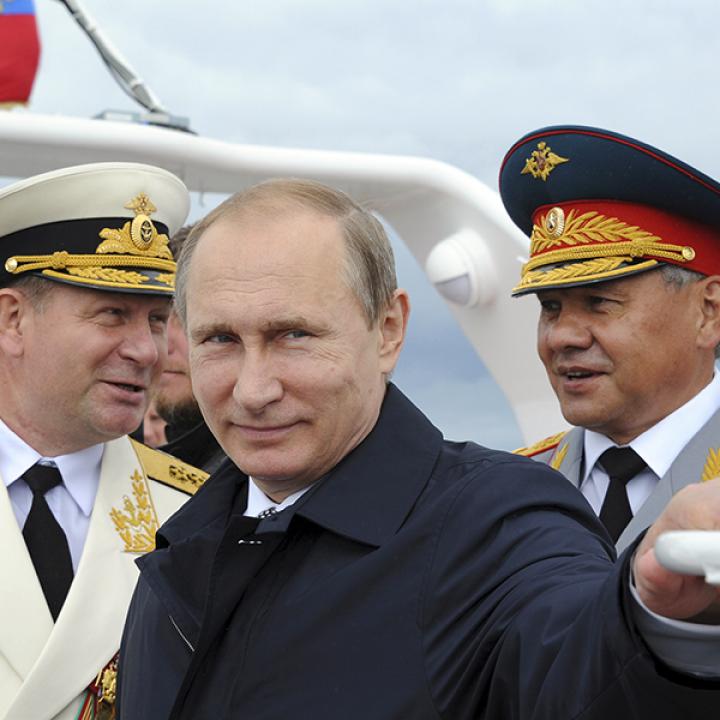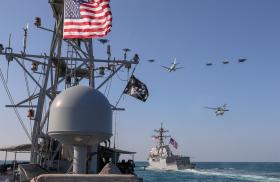

In addition to Moscow's purposeful ambiguity about the true scope of its withdrawal from Syria, the announcement's timing reflects Putin's intention to force favorable terms in the latest peace talks.
As the Syrian peace talks resumed in Geneva this week, President Vladimir Putin announced a partial withdrawal of the "main part" of Russian armed forces as of March 15, according to the state-owned TASS news agency. Noting that the Defense Ministry had "on the whole" achieved its goals in Syria, Putin explicitly connected the withdrawal with the Geneva talks: "I hope that today's decision will be a good signal for all conflicting sides. I hope that this significantly raises the confidence of all participants in the [peace] process." He added that Russia's Foreign Ministry would "intensify" its involvement in that process.
It is unclear exactly which forces will withdraw from Syria, particularly since Putin specified that Russia's Tartus naval facility and Hmeimim Air Base will continue to operate as usual. The air base was established after Russia's military campaign began last September, so it will certainly require Moscow to keep more forces in Syria than it had before the intervention, even if it does make good on its pledge to withdraw some units.
As for the notion that Moscow has achieved its goals in Syria, Putin has previously stated that the purpose of the intervention was to defeat the Islamic State (IS). But the group is obviously not defeated, and Moscow's varying statements about the IS threat do not offer much clarity. On March 14, Defense Minister Sergei Shoigu claimed that Russia had destroyed over 2,000 "bandits" in Syria who had originated from Russia, including seventeen field commanders. Last year, however, the Kremlin justified the intervention in part with claims that 5,000-7,000 fighters from Russia had joined IS -- and those claims themselves diverged drastically from earlier reports citing much lower figures. Besides the fuzzy numbers, Moscow's decision to deploy troops to Syria may have increased the IS threat to Russia rather than decreased it; only time will tell, but the group has already targeted Russian civilians in apparent retaliation for the intervention (e.g., last October's downing of a Russian passenger jet in Egypt was attributed to an IS cell).
More tellingly, the vast majority of Russia's airstrikes in Syria have been against rebels fighting Bashar al-Assad's regime, not against the Islamic State. Rescuing Assad from the rebellion and securing Russia's interests -- as Putin defines them -- has been the real goal in Syria, and on that matter he can certainly claim success. The intervention has strengthened the regime's position in the peace talks in Geneva, with Assad reportedly stating that Russian assistance helped him achieve "victories against terrorism" and stabilize the security situation. Both Assad and Putin define "terrorist" as any armed person who opposes the regime. Assad also noted that Russia will scale back its presence but keep some forces in place.
In broader terms, Putin seems to be laying the groundwork for casting himself as a "great world leader" -- a peacemaker who successfully carried out a limited campaign with "minimum casualties," then withdrew in order to lead international peace efforts. In doing so, he will undoubtedly seek to pressure both the United States and the Syrian opposition to stick with the Geneva process and more important, to make concessions that would benefit Putin above all else. The Russian language has a concept that best describes this situation: "pokazukha," a facade or window dressing, something Putin knows all too well how to construct.
Anna Borshchevskaya is the Ira Weiner Fellow at The Washington Institute.



